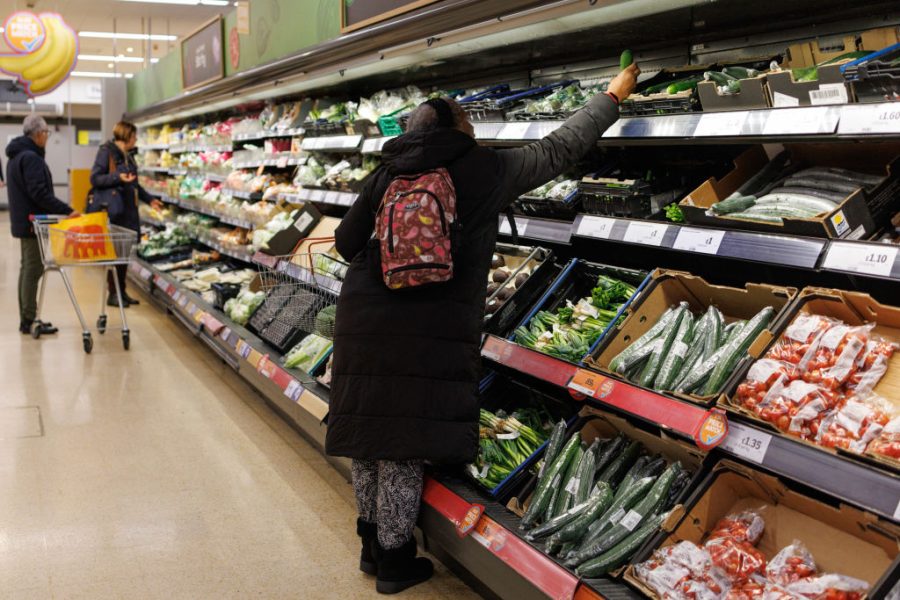Prices are continuing to rise. Consumer inflation stayed at 3.8 per cent last month – matching the figure recorded in July and nearly double the Bank of England’s 2 per cent target.
This morning’s figures on CPI, released by the Office for National Statistics (ONS), were in line with the expectations of markets and pundits. Air fares, which spiked in July due to the summer holidays, were significantly down compared with last year, which offset a rise in fuel, meaning the pace of inflation did not pick up.
There is a tendency in economic reporting to say that because a reading has come in line with forecasts, then it is good news. But the truth is anything but. Food inflation has increased for the fifth month in a row. It is now at its highest level in more than a year at 5.1 per cent. Vegetables, milk, cheese and fish were the main culprits. We are very much in a fresh cost of living crisis.
If inflation does tick up, then Reeves faces a triple whammy going into her November budget
Where there was more reassuring news was in core inflation – which excludes energy and food. That fell back to 3.6 per cent from 3.8 per cent in July. But it is still well above the Bank of England's target and suggests the path back to 2 per cent will not be a quick one. And whilst core inflation may have fallen, we still remain well outside the G7 and are going in a different direction to its other members.
Tomorrow the Bank’s Monetary Policy (MPC) will announce their latest rates decision; the fact inflation remains high means it is all but inevitable that they will hold rates at 4 per cent. Yesterday’s labour market figures paint a gloomy picture of stagnant economic growth, which the MPC’s members are keen to correct, but inflation reaching almost double their mandated target will be enough to scare them into a hold.
Far more interesting, and perhaps consequential for the Chancellor, will be what they decide to do on Quantitative Tightening (QT). This process – of unwinding the hundreds of billions in money printed to fund the pandemic – has taken the form of selling Bank held gilts back into the market. That has led to losses for the treasury and pushed up gilt yields and hence the cost of government borrowing. Tomorrow the MPC will lay out their plans for QT over the next year. In a note to clients last week, the consultancy firm Oxford Economics said they expect committee members to vote to slow the pace of gilt sales. If they do that, it will be a welcome relief for both markets and Rachel Reeves.
If the Bank’s forecasts are to be believed, then September (figures published next month) will see inflation peak at 4 per cent before slowly falling back to target in the late spring of 2027. But given how dreadful the Bank’s forecasting ability has been in recent years, who's to say price rises will stop there.
If inflation does tick on up, then Reeves faces a triple whammy going into her November budget of non-existent growth, a fresh cost of living crisis and a gaping black hole which she must plug. Unwilling to seriously cut public spending, the only sticking plaster she has available to her will be tax rises. The trouble is those tax rises will serve only to make the problem worse as they suppress job creation, hamper growth and push up bills and wages, keeping the inflationary flame alive. The hunt to find something positive to say about Britain’s economy continues.








Comments